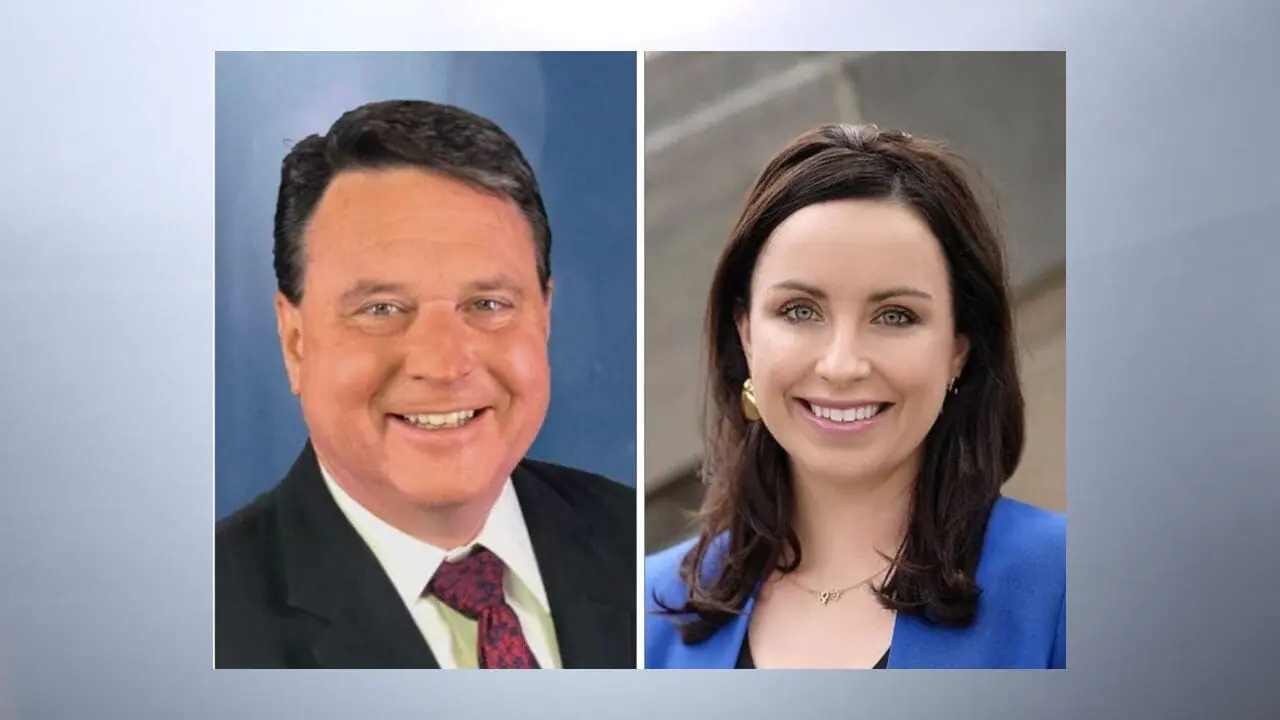Attorney general candidates spar over ad allegations
INDIANAPOLIS (INDIANA CAPITAL CHRONICLE) — Democrat attorney general candidate Destiny Wells went on the attack in advertisements launched last week, prompting rebuke from GOP incumbent Todd Rokita.
In radio and television cuts, Wells’ campaign criticized Rokita’s support for the state’s abortion ban, noted he has been under investigation and alleged he misused public money.
He hit back at Wells.
“Destiny Wells is a failed politician who was just rejected by voters when she ran for Secretary of State two years ago and will now say anything to dig her campaign out of the ditch,” Rokita’s campaign said in a statement to the Capital Chronicle.
Wells accused her opponent of spending about $3 million across a dozen years on unsolicited mass communications during his time as Indiana Secretary of State and in Congress, citing a 2018 investigation by The Associated Press.
The practice is called franking. It’s legal, but controversy has led to regulations. Rokita’s campaign said he went by the book.
“Then Congressman Rokita’s constituent information messaging was approved by the U.S. House bipartisan Franking Commission,” the campaign said. It didn’t address accusations dating back to his tenure as secretary of state.
The Indiana Legislature in 2010 banned state elected officials from using their own names or likenesses in publicly funded communications, which AP reported was aimed at Rokita.
Pay-to-play
Wells additionally accused him of “wasting” public money in “pay-to-play” schemes dating back to his time as secretary of state.
Her campaign added, via email, that his campaign received nearly $75,000 from entities that were awarded about $20.7 million in contracts by the secretary of state’s office. The Wells campaign cited public campaign finance and contract records.
Rokita’s campaign refuted the allegations.
“The idea that anyone is paying to play within the State of Indiana, or specifically the Attorney General’s office, is simply silly on its face,” the campaign said, via email.
“All donor information is public on campaign finance reports, as required by law. All state contracting information is public as well,” it added. “It’s shameful and illuminating that someone running to be the state’s chief legal officer makes criminal allegations without understanding basic legal concepts.”
Rokita, who’s known for a combative communication style, made no reference to his opponent in a statewide radio advertisement launched in late September.
Instead, he plugged himself as “stopping bad ideas” from Washington, D.C., fighting unauthorized immigration, pushing a “parent’s bill of rights,” and suing abusive landlords, among other initiatives.
